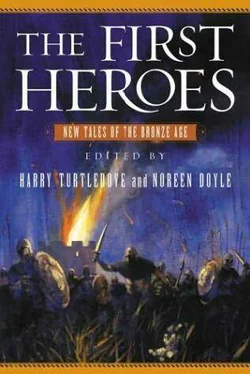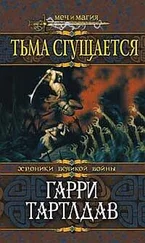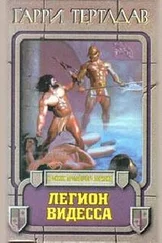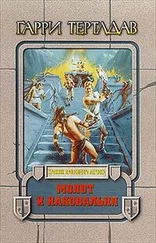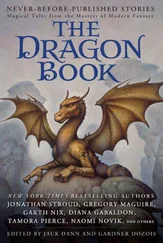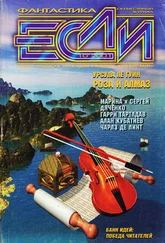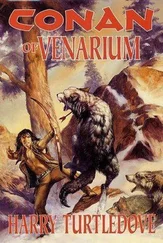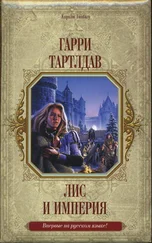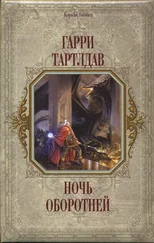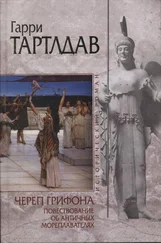Гарри Тертлдав - The First Heroes
Здесь есть возможность читать онлайн «Гарри Тертлдав - The First Heroes» весь текст электронной книги совершенно бесплатно (целиком полную версию без сокращений). В некоторых случаях можно слушать аудио, скачать через торрент в формате fb2 и присутствует краткое содержание. Жанр: Фантастика и фэнтези, на английском языке. Описание произведения, (предисловие) а так же отзывы посетителей доступны на портале библиотеки ЛибКат.
- Название:The First Heroes
- Автор:
- Жанр:
- Год:неизвестен
- ISBN:нет данных
- Рейтинг книги:3 / 5. Голосов: 1
-
Избранное:Добавить в избранное
- Отзывы:
-
Ваша оценка:
- 60
- 1
- 2
- 3
- 4
- 5
The First Heroes: краткое содержание, описание и аннотация
Предлагаем к чтению аннотацию, описание, краткое содержание или предисловие (зависит от того, что написал сам автор книги «The First Heroes»). Если вы не нашли необходимую информацию о книге — напишите в комментариях, мы постараемся отыскать её.
The First Heroes — читать онлайн бесплатно полную книгу (весь текст) целиком
Ниже представлен текст книги, разбитый по страницам. Система сохранения места последней прочитанной страницы, позволяет с удобством читать онлайн бесплатно книгу «The First Heroes», без необходимости каждый раз заново искать на чём Вы остановились. Поставьте закладку, и сможете в любой момент перейти на страницу, на которой закончили чтение.
Интервал:
Закладка:
"The Sumerians had a sexagesimal system, based on factors of sixty, but their place notation progressed in alternating tens and sixes. It was very complicated."
"Hey!" Trent looked delighted. "So their system partook of both hex and decimal."
"Watch it," she repeated. "I didn't say hexadecimal." But Trent had already returned to the computer and was searching the game's list of tables.
Any history game that gave an explanation of the Sumerian notation system had a good chance of positioning itself out of the market, Leslie reflected as she returned to the living room. This one would have a tough time in any event, with Civilization III, the industry's 900-pound gorilla, about (she remembered Trent saying) to burst onto the scene. She wondered whether games that big paid their beta-testers.
The living room window looked onto the front yard, away from the angled patterns of the condo complex behind them. Their lease allowed the owner to terminate on two months' notice if he sold the house to the developers, who evidently had plans to expand the complex next spring. This agreement reduced the rent but also, they learned, discouraged the owner from maintaining his property.
"History begins at Sumer." And ended, presumably, a few years ago, at least according to that silly book her dad sent her one Christmas. Leslie worried less about inhabiting a posthistorical world than a post-boom one, which seemed now to be fully upon them.
Trent was clicking rather than tapping, evidence he was venturing deeper into the game. Fair enough, late Friday afternoon in early September; it was anyway Leslie's turn for supper. She plugged in the laptop's phone jack and went online, and spent the next twenty minutes (the ingredients for salad were already prepared) browsing through the pages that a search on Sumer, Akhad, Mesopotamia brought up.
Gamespace isn't textspace, which tilts the plane to create page, tablet, screen: upright to the eye like the drawings that words once were. Game-space models the earth, a field of play for agents, not the gaze, to move through. Battlefield means battleground, its participants grounded as text never is. Sumer was a plain, even as its texts, lying forgotten beneath the successive accumulations of history, eventually became. You may claim equivalence, each plane perpendicular to its opposite, but the fallen tablets make clear which one subsumes the other.
Perhaps the computer game holds out the promise of genuine space, the three dimensions produced by intersecting planes. A surface isn't space at all, t hough references to "the white space" between words or "floor space" underfoot may seduce us into thinking otherwise. Leslie is undressing for bed, whose flat cotton expanse (it's too hot for blankets) extends unbroken almost to fill the room. Pulling a fitted corner back over the mattress, she causes a spray of rills—converging on an adjacent corner like improbably straight ridges—to widen and disappear. Every bedsheet is a landscape.
Sumerian scribes held their tablets at an angle while writing, as an old stele shows. So the act of writing takes place in space, even if it is read flat? Leslie plans to be asleep before Trent joins her; she is halfway there already. She can hear him in Megan's room reading about Greeks besieging Troy, with occasional glosses. There are probably also excisions of repeated lines, although Leslie can't hear them.
Scribes excised lines with a wet finger, rubbing the clay to blankness. Dried clay couldn't be altered, but fresh material was plentiful; Mesopotamia left no palimpsests like the scraped parchments of the West, too precious to discard. Leslie blanked texts at a stroke, words with no physical fixity dispersed even from the dance of forces that had briefly held them. Drawing the mouse across its pad, its faint drag pacing the highlighting she extended across the page, Leslie unworded the clumsy locution, restored the soothing emptiness, ready for words better chosen, as a child might smooth the surface she had scored. Scribes prepare their own tablets, but merchants are too busy, and Nanshe could push the set clay into the frame's corners with stronger fingers than her brothers, who preferred to scoop mud and hurl. She was not allowed to cut reeds but could bring them to her father, who let her lift the damp fabric and make marks on the pristine square so long as she smoothed them before he needed it.
A female scribe would be laughable, but women in merchant families were often taught to read. Nanshe plied needle, dowel, and chopping knife—awkwardly, but she could still hold a reed better than either brother. Carefully she positioned it between her fingers so that the nib was angled correctly, then sank it cleanly into the surface. The tactile pleasure of its yielding was intensified when she lifted the stylus to see the sharp wedge she had made. Twisting her fingers slowly, she added diagonal and perpendicular strokes: syllables, a word. She yearned to match her father's fluency, but the pride she took in producing a recognizable "wheat" swelled her heart, and she drew the cover back over the tablet without effacing it, a secret message for him to find.
Dampness fled swiftly in the midday heat, and Nanshe stood up with the two frames in her arms and began to pick her way to the upper bank. Enannatum could bear them faster, but he and his friends were busy diverting a stream past their walled mud city, which would soon suffer attack from rival fortifications. Atop the rise, where a footpath paralleled the straight-ruled canal, Nanshe could see across leagues of fields, orchards, and low shaded houses. It seemed readily plausible that if she set down her frames and climbed the nearest tree she would see, wavering on the horizon, the walls of the enemy.
Writing, trade, and a premonition of the consequence: endless warfare and eventual destruction. Ineluctable modality of the geographical, the scribe thought as he rolled a fresh sheet into the platen; at least that if no more.
He was a half dozen pages into a science fiction story, about a nuclear war fought with long-range bombers. Given time, the Soviet Union would doubtless be able to fire rockets halfway round the world, children of the V-2 with H-bombs as warheads. At the moment it didn't seem the world would wait that long.
"There's panic buying in the streets," called Cyril from the front hall. The scribe heard the clink of bottles in the paper bag, and the sound of the door being kicked shut. He realized that he had been unconsciously listening to the elevator ascending, and had set down the book and returned to his story in anticipation of Cyril's entrance.
"Just closing time for the liquor stores," he said calmly. "They're not open Sunday."
"I know panic when I see it." Cyril came in with a pair of bottles and an opener. "There will be fistfights in the grocer's, old ladies trampled in the crush." "Well, we'll be sure not to hoard." He flipped off the bottle cap and took a deep swig. "Whoever imagined Armageddon would arrive through the Suez? Hungary was galling enough. What's this?" Cyril lifted the book off the chair and read the cover. "From the Tablets of Sumer. A subsidiary of Pfizer?"
"You know very well what Sumer is," the scribe retorted. "And the tablets are dried clay."
"My people used stone. Actually, we took whatever God handed out."
"And look where that got—" said both men together. Cyril grinned blackly and tossed the book onto the desk. "Not a great title," he remarked.
"They'll probably change it for the paperback." The scribe typed the rest of his sentence, a brief rattle, and pushed his chair back.
The elevator began to descend back to the lobby, a rickety hum that did not register when he was typing or listening to music, but would start up during a lull to remind him that he lived in a hive. He had moved his family to Milford expressly to get outside the blast radius, and here they were back again, just across the river from Manhattan as Western Civilization seemed to be entering its death throes.
Читать дальшеИнтервал:
Закладка:
Похожие книги на «The First Heroes»
Представляем Вашему вниманию похожие книги на «The First Heroes» списком для выбора. Мы отобрали схожую по названию и смыслу литературу в надежде предоставить читателям больше вариантов отыскать новые, интересные, ещё непрочитанные произведения.
Обсуждение, отзывы о книге «The First Heroes» и просто собственные мнения читателей. Оставьте ваши комментарии, напишите, что Вы думаете о произведении, его смысле или главных героях. Укажите что конкретно понравилось, а что нет, и почему Вы так считаете.
